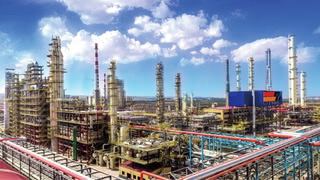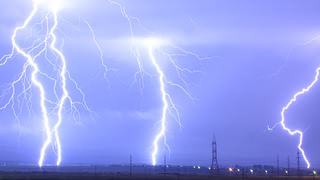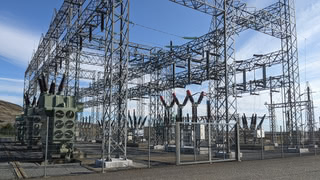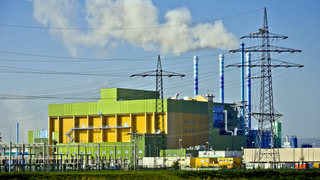Is Enerkem's Waste Gasification technology a Failure or a promising Climate Solution?
Repsol wants to build a waste gasification plant to make circular and biogenic Methanol in Spain. The Ecoplanta project will use a technology that previously failed to deliver on its promises in Canada.
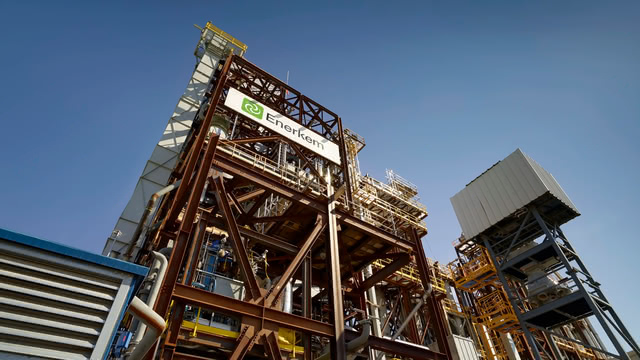
In October 2025, the Spanish energy company Repsol and Norwegian Cruise Line Holdings (NCLH) announced that the two companies signed an offtake agreement for biofuels and renewable Methanol to power NCLH's ships. The announcement came just a few days after Canadian StormFisher Hydrogen acquired the remains of Recyclage Carbone Varennes, an unfinished Waste-to-Methanol plant in Canada that came into financial trouble earlier this year.
These two seemingly unrelated news items are both part of a larger story. It is the story of Enerkem, a once-promising Canadian cleantech company that recently went through some difficult times.
Repsol's renewable Methanol shall come from a facility at its chemical complex in Tarragona, Spain, using the same waste gasification technology that Recyclage Carbone Varennes in Canada was initially supposed to use. It is a technology that was developed over many decades. It previously failed to deliver on its promises in Edmonton, Canada, which raises the question of why Repsol believes that it will succeed in Spain. EU citizens and Spanish taxpayers will have to shoulder a substantial fraction of the project's costs, after Canadian taxpayers already lost hundreds of millions.
Enerkem is not the only company trying to establish waste gasification. Converting otherwise non-recyclable waste or biogenic residuals into valuable chemicals or energy sources is something that many have tried over the past decades. Most have failed, billions have been invested and lost on gasification plants that never worked.
Making waste and biomass gasification technology work as an industrial process is challenging. The few plants that work, most of which are located in Japan, often burn the resulting gas, which is naturally easier than cleaning it enough to produce valuable chemicals.
Yet, if it works, gasification technology could be an extremely valuable tool to fight climate change — and to enable a more circular and less damaging chemical industry.
Biomass Gasification as an answer to the 1970's Oil Crisis
The research that led to the development of Enerkem's technology started many decades ago. We can read the following on an old version of Enerkem's web page. "A new awareness on the needs for alternate energy sources was the consequence of the early 1970's 'oil crisis'. The biomass connection was considered one of the alternatives. A partnership between researchers of the Université de Sherbrooke (Québec, Canada) and the National Research Council of Canada, led to the creation of the Groupe de Recherche sur les Technologies et Procédés de Conversion (GRTPC) dedicated to fundamental and applied research in biomass conversion."
The work of the research group Enerkem mentioned here led to the construction of BIOSYN, a pilot plant with a predecessor of Enerkem's technology. Operated by Nouveler, a subsidiary of Hydro-Québec, BIOSYN converted biomass inputs into syngas, a mixture of Carbon Monoxide and Hydrogen. Syngas is a common feedstock in the chemical industry. Even back then, plans were to make Methanol from the resulting syngas, providing an alternative source of energy. However, the plans to build a Methanol production plant were never realized.
Esteban Chornet, a professor from the University of Sherbrooke who was part of these early research efforts, would later create a company called KEMESTRIE in 1993 to further develop the technology. To commercialize the technology, Esteban Chornet and his son, Vincent Chornet, founded Enerkem in 2000.
From Biomass to Waste Gasification
Enerkem built its first two pilot plants in the early 2000s, one at its headquarters in Sherbrooke, another in Spain. Early on, Enerkem broadened the scope of its gasification technology. The plant in Spain was gasifying plastic waste to generate electricity. (Enerkem often called its products "biofuels" even if they were made from waste plastics or mixed waste. It is certainly questionable terminology, as plastics are, after all, just another type of fossil fuel.)
In 2009, a larger demonstration plant in Westbury, Canada, started producing syngas, using treated wood from used electricity poles as its feedstock. By adding further conversion steps, Enerkem started producing Methanol in 2011 and Ethanol in 2012.
In the early 2010s, Enerkem built its first industrial-sized plant in collaboration with the city of Edmonton, Canada. The plant located at the Edmonton Waste Management Centre faced some challenges and delays early on. It was supposed to start production in 2011. Eventually, it was inaugurated and produced its first Methanol in 2014. Enerkem announced at the time that it would have an annual production capacity of 38 million liters. In 2015, Enerkem added a Methanol-to-Ethanol conversion unit to the plant.
Enerkem's future looked promising. The prospect of converting otherwise unusable waste to valuable resources attracted the interest of larger players in the chemical industry.
In 2018, Enerkem entered a collaboration with Air Liquide and AkzoNobel Specialty Chemicals to build a waste-to-chemicals plant in Rotterdam in the Netherlands. In 2021, investments for a large-scale facility with Enerkem's technology in Varennes, Canada, were secured and construction of the facility named Recyclage Carbone Varennes started. In 2022, Repsol received a funding grant from the EU for Ecoplanta, a proposed plant with Enerkem's technology at Repsol's petrochemical complex in Tarragona, Spain.
In the early 2020s, several developments occurred that made Enerkem's technology look increasingly attractive. A youth-driven climate movement increased political momentum for clean technologies and alternatives to fossil fuels. Driven by initial interest from the shipping industry to use it as a future fuel, green Methanol became a major part of the cleantech discussion.
The chemical industry promoted chemical or "advanced" recycling as a potential solution for tackling plastic waste. Gasification could turn otherwise non-recyclable waste into new products and is one of the major potential pathways for chemical recycling.
And then there was, of course, Hydrogen. Japan, Germany, and subsequently many other countries initiated Hydrogen strategies, and the Hydrogen hype reached its peak in the early 2020s. The prospect of abundant, clean Hydrogen provided an opportunity for Enerkem's technology. Its gasification process gets its energy from what is called partial oxidation, which, in essence, means that it takes energy from its own feedstock.
While this limits the need for external energy, it also means that part of the input is converted into CO₂, and only a fraction of the carbon contained in the input is retained. By adding Hydrogen to the mix, the yield can be increased substantially. This idea of waste gasification with increased yield through Hydrogen was what Enerkem and its partners were now targeting for some of the upcoming projects, notably Ecoplanta in Tarragona, Spain, and Recyclage Carbone Varennes in Canada.
From the outside, Enerkem's future looked very promising. However, in 2024, Enerkem's story took a major turn. Events unfolded that would bring Enerkem to the brink of bankruptcy.
The Shutdown of Enerkem's plant in Edmonton
In January 2024, Enerkem announced that it would retire its plant in Edmonton. Enerkem tried its best to communicate it as a success. The plant had, according to Enerkem, "achieved its main objective of completing the commercial scale-up of Enerkem's industry-leading technology."
However, when having a closer look at the plant's initial promises and its actual performance, it is hard not to see it as a massive failure. Enerkem initially had a deal with the city of Edmonton to process waste for 25 years. The plant operated for only around 9 years.
Even more devastating is the actual production. The plant was designed to have a production capacity of 38 million liters per year. CBC Canada reported that it only produced 5 million liters — not per year, but during its whole lifetime. Enerkem's own web page also mentions those 5 million liters and 15,000 operating hours.
It is not unexpected that a first-of-a-kind facility does not reach its initially projected production volumes. However, Enerkem's actual production in Edmonton was only around 1.5 percent of the projected capacity. 15,000 operating hours (approximately 21 months) indicate that the plant was not running around 80 percent of the time. And even when it was running, it only produced a fraction of the intended output.
What happened? Enerkem has not shared many details about the operations in Edmonton. I have made multiple attempts to ask Enerkem questions or interview them, but my requests remained unanswered.
Observant readers will have noticed that, both in Edmonton and in its earlier plant in Westbury, Enerkem initially started by producing Methanol and later pivoted to Ethanol. It is worth exploring this more closely.
Methanol and Ethanol are both alcohols. Methanol is the simplest alcohol, Ethanol is the "standard" drinking alcohol. Despite their similarities, both chemicals are usually produced through very different pathways.
In Enerkem's plant in Edmonton, waste is first heated in a reactor to 800 degrees Celsius, molecules are broken up, and Hydrogen, Carbon Monoxide, and Carbon Dioxide are created. This mixture, the syngas, needs to be cleaned for further processing. As one can easily imagine, mixed waste contains all kinds of molecules. Syngas cleaning is often considered to be one of the challenging aspects of gasification technology.
Converting syngas into Methanol, however, is an established process. It is how Methanol is already made in the chemical industry these days, with the difference that syngas is usually made through steam reforming of fossil gas.
Enerkem decided to add another process that converts Methanol into Ethanol. And this process is, apparently, not as straightforward. It involves first converting Methanol into Acetic Acid, converting Acetic Acid into Methyl Acetate, and hydrogenating Methyl Acetate, which produces a mixture of Methanol and Ethanol. In other words, it's quite complex.
It is an unusual path to make Ethanol. The common way to produce Ethanol is through fermentation. It involves biological processes and bacteria. Most existing Ethanol production either utilizes sugarcane, sugar beet, or corn. (There are also some companies working on a Gasification-to-Ethanol path through fermentation of syngas, but that is quite different from Enerkem's technology.)
The question is: why go through all that trouble of converting Methanol in a complicated process into Ethanol? A way of making biogenic or circular Methanol would already be valuable. Methanol is a major intermediate product in the chemical industry, and its production is a massive source of greenhouse gas emissions. It can also serve as a fuel.
However, Methanol is also a cheap commodity chemical, produced in large plants that can benefit from economies of scale. Back when Enerkem planned its operations in Edmonton, there was no major market for green Methanol. Yet, Ethanol was already an established biofuel in the United States, with a market that was willing to pay a premium.
Enerkem received approval from the US Environmental Protection Agency (EPA) to sell Ethanol from its plant in Edmonton under the Renewable Fuel Standard (RFS) as cellulosic Ethanol in 2017. (Again, whether Ethanol made from mixed waste, including plastics, should count as a renewable fuel at all, let alone as "cellulosic" Ethanol, is certainly questionable. Yet, it is allowed within some biofuel certification schemes.)
Given Enerkem's lack of transparency, it is hard to tell why exactly its plant in Edmonton failed. Yet, there are some indications that part of the problem was that market circumstances pushed Enerkem to pursue a product that required an additional, complicated conversion step (Ethanol) instead of going for the simpler route of directly making Methanol.
In a 2012 document available on the US SEC web page, Enerkem discloses business risks to potential future shareholders, and explicitly mentions that "the conversion of methanol into ethanol in commercial volumes may prove to be more challenging than we anticipate."
As mentioned, Enerkem's own web page says that its Edmonton plant produced 5 million liters. However, it does not say what those 5 million liters refer to. An article in the Edmonton Journal from 2018 mentions that Enerkem ran its facility in 2014 for a year without the conversion to Ethanol and produced 5 million liters of Methanol to showcase it to potential European partners.
Enerkem produced 5 million liters of Methanol early on in Edmonton and, according to their own account, the plant only produced 5 million liters in total. It appears that, once the Methanol-to-Ethanol unit was in place, Enerkem did not produce any meaningful amounts at all.
While Enerkem's plant in Edmonton certainly was a commercial disappointment, an industry insider told me that it was not necessarily a failure for the company. Enerkem produced enough Syngas and Methanol to convince investors that the technology can work and has potential, which brings us to the next chapter.
Recyclage Carbone Varennes
While Enerkem's plant in Edmonton was shut down in early 2024, more than 3,000 kilometers east of it, another plant with its technology started taking shape: Recyclage Carbone Varennes, or Varennes Carbon Recycling (being bilingual, it is common in Canada to have both an English and a French name for a project). This project has its own long history. The earliest announcements date back to 2012. Investment agreements were signed almost a decade later, in early 2021.
Investors for Recyclage Carbone Varennes included Shell, Suncor, Proman, and the government of Québec. Suncor is a company primarily involved in producing oil from bitumen, also known as oil sands or tar sands, a very dirty and emission-intensive business. Proman, headquartered in Switzerland, is one of the world's largest producers of Methanol from fossil gas. Shell probably needs no introduction.
The plant in Varennes was supposed to be substantially larger than the one in Edmonton, with a production capacity of 100,000 tons of Methanol annually, around 120 million liters. What it did not involve was a Methanol-to-Ethanol conversion step.
As previously mentioned, it was also planned to utilize additional Hydrogen. A massive 90-megawatt PEM electrolyzer should have provided Hydrogen, it was supposed to be the largest one in North America. The project's FAQ says: "We will use renewable hydroelectricity, purchased from Hydro-Québec, in an electrolyzer to split water into hydrogen and oxygen." (An old acquaintance: Hydro-Québec was the company behind BIOSYN in the 1980s.)
The project was struggling with cost overruns. However, that is certainly not unusual for a first-of-a-kind project. As we can learn from documents from a CCAA process facilitated by Ernst & Young (CCAA is a legal process in Canada to restructure companies in financial debt), difficulties started in 2024.
According to those documents, Varennes Cellulosic Ethanol (VCE), the company behind the project (the name is likely a historic artifact due to earlier plans), faced cost overruns of 230 million Canadian dollars. Total project costs were initially expected to be around 1.5 billion Canadian dollars. In December 2024, VCE issued a capital call, asking its partners to provide additional funding for the project. Proman, the fossil Methanol producer from Switzerland, did not pay.
Proman and VCE disagreed on whether Proman was legally required to provide additional funds for the project. According to the CCAA documents, Proman alleged that the Capital Call was invalid, as "VCE was allegedly subject to an insolvency event" and "a material adverse change had occurred in respect of VCE and the Project." VCE denied these claims and "asserts that the December 2024 Capital Call was valid and binding."
Subsequently, VCE was running out of money, and in March 2024, La Presse reported that construction work was suspended. According to the CCAA documents, the "biofuels plant" (likely referring to the gasification and Methanol synthesis plants) was 75 percent finished, and the electrolyzer was 45 percent finished.
In October 2025, StormFisher Hydrogen announced that it would acquire the remains of Recyclage Carbone Varennes. Its announcement contains no price, but news reports indicate that StormFisher Hydrogen offered 17.5 million Canadian Dollars — a tiny fraction of the already invested money. More than half a billion Canadian Dollars in public funds were lost.
"Unlike the initial RCV project, which relied on biomass gasification to produce methanol, StormFisher will use clean hydrogen and captured CO₂ to produce methanol," the company writes in a press release. "This proven approach is simpler, cleaner, more reliable and more resilient, while reusing part of RCV's existing infrastructure and lowering overall risk." Recyclage Carbone Varennes may have a future as a repurposed E-Methanol project, but it will not involve Enerkem's gasification technology.
As the construction of Recyclage Carbone Varennes was never finished, we do not know whether the technology would have worked. Proman, the investor whose decision was a key moment, eventually leading to the project's fate, has not publicly explained its actions beyond what's written in the CCAA documents. Proman has not answered to questions for this article.
What happened to the other projects? In Rotterdam, Shell joined as a proejct partner in 2019, and in 2021, the focus was changed. Instead of making Methanol, the project was now targeting Sustainable Aviation Fuels, made with Shell's Fischer-Tropsch technology. Although no cancellation was officially announced, the project disappeared from Enerkem's website in 2023.
(Shell also had another biofuel facility in Rotterdam under construction, the HEFA Pernis project, which was recently cancelled. While at the same location, Shell confirmed to me that this recently cancelled biofuels project was unrelated to the gasification project with Enerkem. HEFA is an entirely different biofuel production process.)
Enerkem had entered another partnership with a company called Dimeta, a subsidiary of the propane gas and LPG producers SHV and UGI. Dimeta and Enerkem had announced plans to build two dimethyl ether plants with Enerkem's technology. LPG and propane gas producers have pitched renewable dimethyl ether as a drop-in replacement for LPG. SHV was involved in multiple gasification-to-dimethyl-ether projects, but none of them was ever built. The company Dimeta no longer exists.
Catalonian Party Junts stopped a Tax for Energy Companies like Repsol
The collapse of the Recyclage Carbone Varennes project led to financial difficultes for Enerkem itself. In May 2025, the company also entered a CCAA process.
Most of Enerkem's projects, whether the existing plant in Edmonton, the construction in Varennes, or the various other projects that never entered the construction phase, failed one after another. Yet, one project remained: Repsol's Ecoplanta in Tarragona, Spain.
In 2022, Ecoplanta received a funding commitment from the European Union's Innovation Fund. This fund distributes money from the EU's Emission Trading System to projects trying out new emission reduction technologies on an industrial scale.
Back in 2021, Repsol foresaw a possible investment decision for Ecoplanta in 2022, with a production start in 2025. But those plans were delayed by multiple years.
In 2022, after Russia's attack on Ukraine and the subsequent energy crisis in Europe, the Spanish government introduced a temporary windfall tax for large energy companies. More recently, the Spanish government intended to prolong this tax beyond 2024. Unsurprisingly, energy companies were not happy about it — and pressured the government to drop those plans.
Repsol, in particular, was very vocal. The company suggested that, if the tax stays in place, it would impact investments into the energy transition in Spain.
Eventually, the plans to extend the tax were dropped. The Spanish government, a coalition between the Spanish Socialist Workers' Party (PSOE) and the Sumar alliance, is a minority government. It relies on the support of several smaller parties in the Spanish Parliament. One of them, Junts per Catalunya (Together for Catalonia), a Catalan separatist party, declined to support the tax extension, worrying that it would impact major investments in Tarragona, which is located in Catalonia. Conservative opposition parties also rejected the tax extension, and subsequently, there was no majority for it.
A few days after it became clear that the energy tax would not be extended, Repsol announced the investment decision for Ecoplanta.
Repsol saved Enerkem
Without Repsol, Enerkem would probably no longer exist. Repsol was already an investor in Enerkem before, but as a result of the CCAA process, Repsol now owns the majority of Enerkem. Ecoplanta is probably Enerkem's last chance to establish its technology.
Repsol seems determined to proceed with its project. It has recently awarded engineering service contracts to Technip Energies and announced its offtake agreements with Norwegian Cruise Line Holdings (NCLH).
Yet, with all of Enerkem's previous projects in ruins, it is certainly worth asking some questions. Ecoplanta will receive substantial public funding. The EU Innovation Fund grant alone is worth 106 million euros. Not extending the Spanish energy tax, due to the direct connection to Repsol's pressure and the Ecoplanta investment, can be seen as additional, indirect support by Spanish taxpayers. Enerkem's projects have already cost Canadian taxpayers hundreds of millions.
Like the project in Varennes, plans for Ecoplanta are to extend its yield by adding additional Hydrogen. Repsol has received another Innovation Fund grant worth 62 million euros for its Tarragona complex for a large-scale electrolyzer called T-Hynet.
Is it worth putting all this public money into Enerkem's gasification technology? Why does Repsol apparently believe that it can make a technology work in Spain when it looks like it was a massive failure in Edmonton? Is it just throwing more money at a technology that will never deliver? Those are certainly legitimate questions.
Gasification technology is challenging, and Enerkem is not the first company to run into trouble trying to make it work. However, if one seeks to fully decarbonize the economy, to achieve net-zero, gasification could be a crucial tool.
Long-distance shipping, most aviation, and carbon-containing products like plastics will need chemical inputs, most of them carbon-based, in a net-zero future. Making them from CO₂ requires such enormous amounts of energy that it is hard to see how this will happen without adding other feedstocks. Biomass can only be scaled if we can utilize more sustainable feedstocks — and the most promising way to achieve this is through gasification. (Most ideas for "advanced" or "second-generation" biofuels rely on gasification.)
There are indications that Ecoplanta could, realistically, be more successful than Enerkem's plant in Edmonton. Some of Enerkem's problems in Edmonton can probably be attributed to the Methanol-to-Ethanol process. Repsol appears to have no intention of doing something similar for Ecoplanta. (There are other promising pathways for more sustainable Ethanol. We can let Lanzatech and others deal with that.)
Furthermore, a waste gasification plant is a complex chemical facility, probably one of the most complex chemical plants imaginable. Yet, the petrochemical industry is certainly no stranger to complex chemical plants. Enerkem's first industrial plant was placed in the Edmonton Waste Management Centre, operated by the municipality. It seems plausible that a gasification plant at a petrochemical site like Tarragona, operated by a company with experience operating chemical plants, has a better shot at solving its technical challenges.
If one could turn various types of waste and hard-to-utilize biomass into syngas, Methanol, and from there into jet fuel, plastics, and other chemicals, it would be an enormously helpful tool for a net-zero economy. If Ecoplanta has a realistic chance of succeeding, it may be worthwhile to prove the money needed to make it work. Yet, EU citizens, and even more so Spanish taxpayers, could legitimately ask why Repsol and Enerkem believe that the public support they receive is a worthy investment, given the poor results in Edmonton, Canada.
(Neither Repsol nor Enerkem have answered to questions for this article.)
Correction: An earlier version of this text claimed that Enerkem's co-founder, Vincent Chornet, is also the company's current CEO. This was incorrect. Vincent Chornet passed away in 2019. Enerkem's current CEO is Michel Chornet, Vincent Chornet's brother. I apologize for this mistake.
Author: Hanno Böck
Elsewhere
- I made a video explaining some common misconceptions around Carbon Capture and Storage (CCS).
Brief
-
BlueCircle Olefins, a startup aiming to produce circular plastics from Methanol, has announced that it has secured funding for ProjectNL, a Methanol-to-Olefins plant to be located in Rotterdam in the Netherlands. It is the second announcement for an MtO plant in Europe. VioNeo, a startup with close ties to the shipping giant Maersk, which I have covered here, has plans for a similar plant in Antwerp, Belgium.
-
Liquid Wind and Umeå Energi have finalized agreements for an E-Methanol production facility utilizing CO₂ from a waste-to-energy plant. I had interviewed Liquid Wind's CEO Claes Fredriksson earlier this year.
-
I had previously covered the MF Hydra (also in a video), the world's first ferry running on liquefied hydrogen (LH2). Its operator, the Norwegian company Norled, recently faced some financial challenges and had to lay off staff, which is attributed to the high costs of the Hydrogen ferry.
